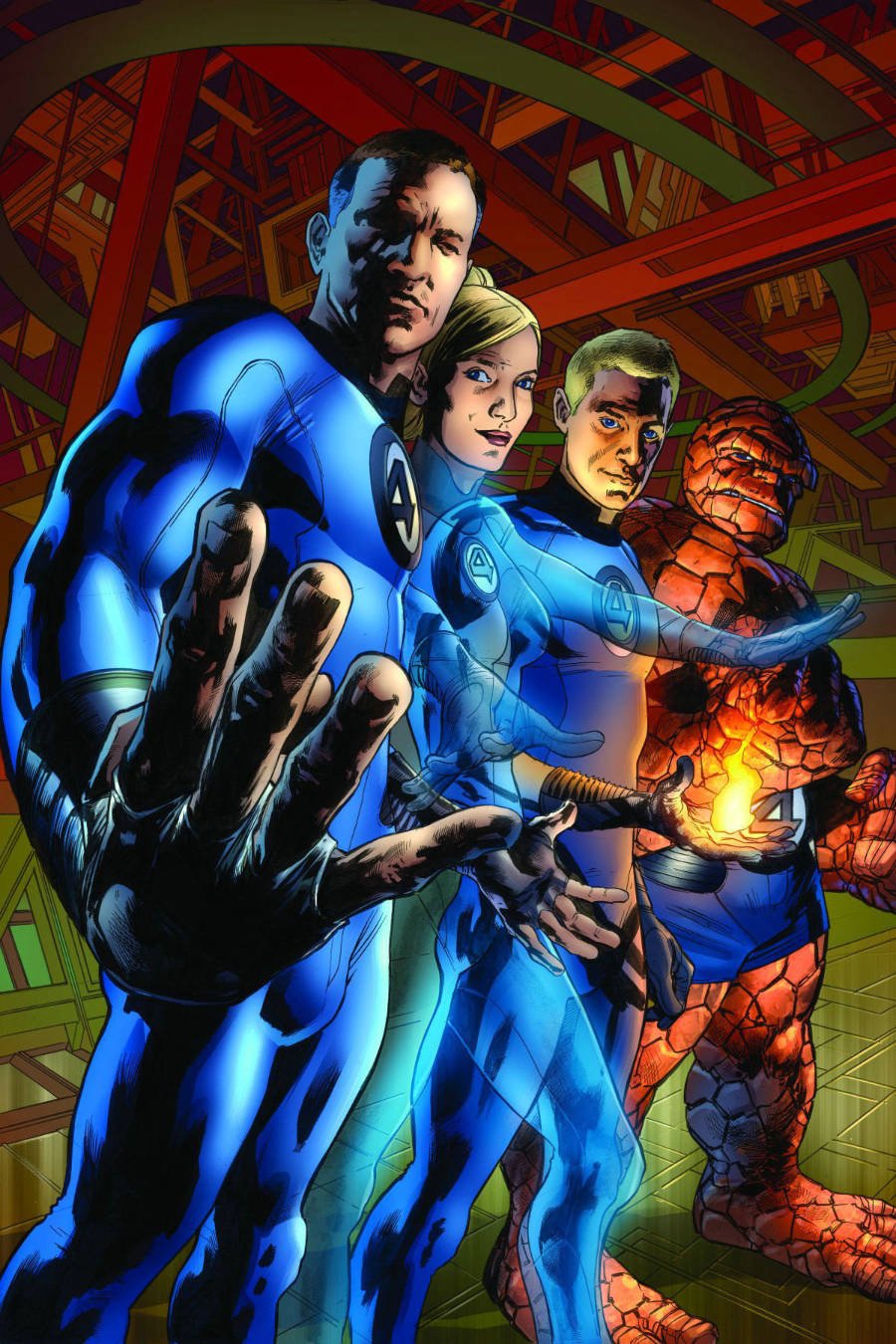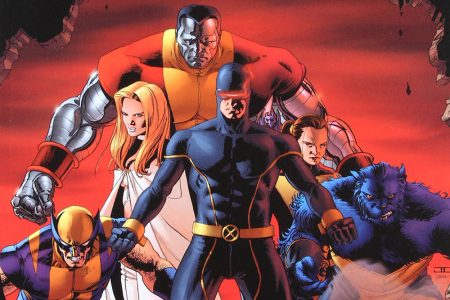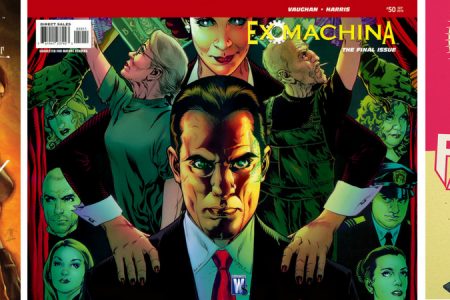Fantastic Four #554–561 by Mark Millar and Bryan Hitch
A confession: I think I bought this book because it was such a bargain on Amazon. I got it for ~£6.50 – for eight issues, that’s a great bargain, and I couldn’t resist. I hadn’t really read reviews for the individual comics, but I thought that it was going to be fine – the Fantastic Four done by the team who did the (good) Ultimates stories had to be good, right?
The first thing that should have been an indicator was the art – take the cover of the trade to the right (which is the same as issue #554). Fingerless gloves? Really? Hitch’s art has previously been a thing of beauty – the huge panels and sweep of The Authority and The Ultimates, the clean lines, the beautiful people – but this seems muddy and inconsistent, with harsh facial lines, silly costume redesign for the team and lots of dark panels of confusing action. If there is a book that demands a clean line, it’s the Fantastic Four – the world’s greatest team needs great art to show the purity of the ideas, not the gritty realism of rough and ready pencil work. I know that I shouldn’t begrudge an artist from developing his style, and I think that Hitch has been changing his style constantly since his early days as an Alan Davis clone, getting away from Davis’ purer line work, but it seems the wrong choice for this book and almost ugly in places.
The other aspect of the book is Millar himself. You know what to expect from a Millar book – broad strokes, pop cultural references that date the work as soon as its published, sweeping plots that are fun but collapse under close scrutiny (which he thinks have never been done before and will completely redefine an old franchise). However, his style doesn’t seem to gel together for the Fantastic Four. He is a good writer and has a good handle on the characters (although the Fantastic Four are the most well-defined and distinctive team in the Marvel universe), but the attempt to do large seems to get lost in explaining the ideas. The juxtaposition of the real world problem of the earth’s ecosystem with the fantastical solution of a replacement earth seems a little demeaning, and a bit silly. The ‘CAP’ robot is also a silly idea, which is shown to be powerful in a silly way, by having a double-page spread of fallen heroes before the FF can help, and the final anime-inspired fight seems particularly silly. The second storyline, which involves some future heroes and wonderfully improbable plotting (as Johnny says: ‘No way. You guys mugged Galactus and used his power to boot up your time machine?’), results in an entirely silly alternate world status quo, which led to a mini-series by the British television writer/director (Ultraviolet, Apparitions, Doctor Who) Joe Ahearne that had its run cut short because it was selling so low (and apparently not very good) and Jonathan Hickman having to wipe under the carpet in his current run on Fantastic Four.
I think the problem with this was the lack of heart to the story, no feeling of emotional truth (if that can be said of a comic book about the first superhero family of the Marvel universe). I’m not sure I can explain that feeling very well, but if it doesn’t ring true then I can’t buy into it and enjoy the fun. I didn’t feel any connection to it, despite the best attempts of the creators involved. At least I didn’t spend too much money on it …




